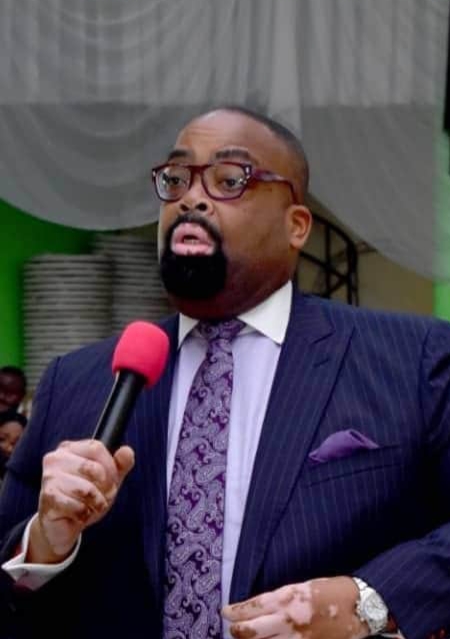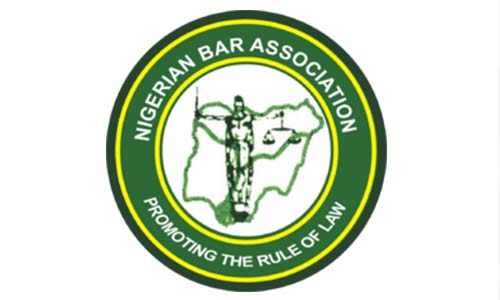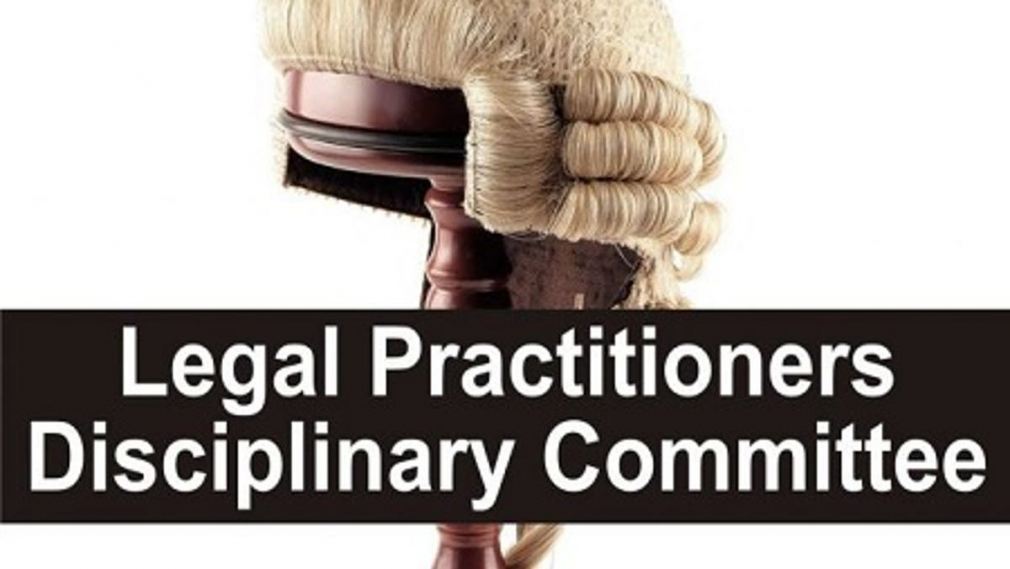[NBA-SPIDEL-Town Hall Meeting] Nigeria Has The Highest Number Of Persons (Circa 90 Million) Living In Extreme Poverty — NBA President, Akpata

The President of the Nigerian Bar Association, NBA, Mr. Olumide Akpata, has raised posers as to how far Nigeria has faired in observance of chapter II of the Constitution of the Federal Republic of Nigeria, 1999 (as amended).
This is contained in his welcome remarks at the Town Hall Meeting organized by the Nigerian Bar Association Section on Public Interest and Development Law (“NBA-SPIDEL”) with the theme, “Justiciability of Chapter 2 of the 1999 Constitution – Pragmatic measures for Government’s Accountability.” which held on February 28, 2022 at Marriott Hotel, Ikeja, Lagos.
In trying to assess how Nigeria has observed the Chapter II of the 1999 Constitution which deals with fundamental objectives and directive principles of state policy, Akpata says Nigeria has the highest number of persons (circa 90 million) living in extreme poverty.
He said, “Distinguished ladies and gentlemen, it is nothing short of extraordinary coincidence that this town hall meeting is taking place on the same day that the Independent National Electoral Commission (INEC) published the Notice of Election (Form EC 60A) to officially signal the commencement of electoral activities towards the national elections taking place in February and March 2023. The next consequential stage of the electoral process will be the commencement of electoral promises by different aspirants and candidates. The question therefore has to be asked, how have the governments at all levels fared in the fulfilment of their promises and the enforcement of their social contract with the Nigerian people?
“It is a well-known fact that we have an entire Chapter in the 1999 Constitution dedicated to the provision of socio-economic rights, titled Fundamental Objectives and Directive Principles of State Policy. That Chapter provides in no unclear terms that it shall be the duty and responsibility of all organs of government, and of all authorities and persons, exercising legislative, executive, or judicial powers, to conform to, observe and apply the provisions of this Chapter of this Constitution. How have we fared? To answer this question, let us take a look at the raw numbers.
“The World Poverty Clock records Nigeria as the country with the highest number of persons (circa 90 million) living in extreme poverty, an unwanted feat that we attained after overtaking India. When you consider the fact that the population of India is almost seven times that of Nigeria, then you can understand the implication of that statistic.
“According to data from the government-run National Bureau of Statistics, unemployment rate in Nigeria is at an all-time high of above 33.0%, with almost 65% of the country’s youth either unemployed or underemployed.”
Still on the observance of the socio-economic rights in Chapter two of the 1999 Constitution, Akpata said Nigeria has the highest number of Out-of-School Children (over ten million) in sub-Saharan Africa. Relying on UNICEF report, Akpata says even though primary education is officially free and compulsory in Nigeria, about 10.5 million of the country’s children aged 5-14 years are not in school; only 61% of 6–11-year-olds regularly attend primary school and only 35.6% of children aged 36-59 months receive early childhood education.
He added that Nigeria is proposing to spend 36.5% of the 2022 budget to service debts while still planning to borrow N5.012 trillion to finance the 2022 budget deficit.
“Sometime last year, Nigeria’s Minister of State for Education, Chukwuemeka Nwajiuba, was reported to have said that Nigeria has the highest number of Out-of-School Children (over ten million) in sub-Saharan Africa. Another unwanted statistic comes from the United Nations Children’s Fund (UNICEF) and it reveals that one in every five of the world’s out-of-school children is in Nigeria. UNICEF further claims that even though primary education is officially free and compulsory in Nigeria, about 10.5 million of the country’s children aged 5-14 years are not in school; only 61% of 6–11-year-olds regularly attend primary school and only 35.6% of children aged 36-59 months receive early childhood education.
“Further, although Nigeria is regarded as the biggest economy in Africa, with a gross domestic product (GDP) of around US$ 500 million, a closer look at the practical macroeconomic indices reveals that this does not necessarily impact on the bottom-line of the average Nigerian. For instance, Nigeria is not in the top 15 of the highest per capita income in Africa and Nigeria’s inflation rate is higher than the average for African and sub-Saharan countries.
“Further still, Nigeria’s infrastructure deficit is so high that it is widely accepted to be one of the biggest factors holding back the country’s growth and development. While there have been different projections, let us use that of Boss Mustapha, Secretary to the Government of the Federation, who stated sometime in June 2021 that about $2.3 trillion is needed to bridge the infrastructure deficit in Nigeria over the next 22 years.
“On top of all these, Nigeria is undoubtedly labouring under the burden of humongous domestic and foreign debts, with the country proposing to spend 36.5% of the 2022 budget to service debts while still planning to borrow N5.012 trillion to finance this year’s budget deficit. According to the Debt Management Office, as of Q3 2021, the total external debt of the Federal Government stood at US$ 37.96 billion. I do not believe that there is anyone in this room today who is not worried about the above numbers. I have not even mentioned the gross failure of government to secure the lives and properties of Nigerians which is the raison d’etre of government and the reason why the people gave up a part of their liberties to the government.” Akpata said
The NBA President concluded by explaining that the above facts form the basis of the NBA-SPIDEL townhall meeting so as to discuss the ways forward.
He words, “It is for the above reason that the NBA decided to host this to convoke much needed conversation around the need for us to stop paying lip-saying to the provision of socio-economic rights to Nigerians. As the Chairman of NBA-SPIDEL, Dr. Monday Ubani correctly noted in the publicity material for this event, the essence of this town-hall meeting is to arouse the consciousness of the various critical institutions in Nigeria that have the constitutional mandate to provide socio-economic rights to Nigerians. While the emphasis will today be on the judiciary and to examine how the courts can be more creative in the interpretation of the provisions of Chapter 2, which even law students know are not justiciable strictly speaking, it is nevertheless pertinent to hear from the other arms of government and other relevant institutions and organisations. In this regard I particularly look forward to the lead speaker’s presentation as well as the various plenary sessions.
“As we begin the countdown to the 2023 election season, characterised by another round of political promises, it is time to take account and to put these issues in proper perspective. The Nigerian government can and must do better in the provision and safeguarding of the socio-economic rights of Nigerians.”



